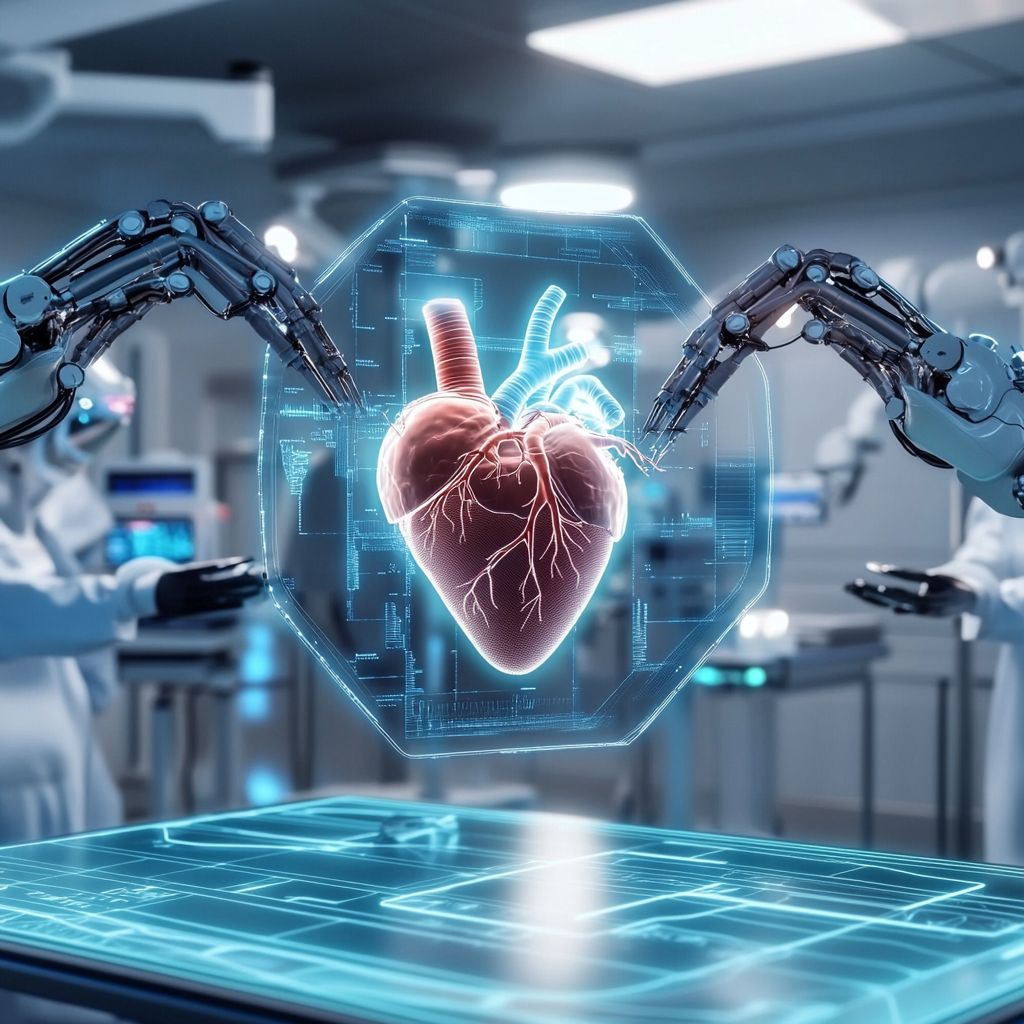
Cardiac surgery has undergone a fundamental transformation in recent years due to scientific and technological advancements. From artificial intelligence to 3D printing technology, from robotic surgery to biotechnological tissue engineering, many innovations are making patient diagnosis and treatment processes safer and more effective. In this article, we examine in detail five key technological developments shaping the future of cardiac surgery, along with scientific sources.
1. Personalized Treatment with Artificial Intelligence and Machine Learning
Artificial intelligence (AI) and machine learning algorithms are making risk assessment and patient selection in cardiac surgery much smarter. Deep learning models, in particular, are more successful than traditional scoring systems in predicting critical outcomes such as postoperative mortality by analyzing preoperative data.
🔹 Source: arXiv – Deep Learning Models for Predicting Postoperative Mortality
Additionally, AI plays an important role in training surgeons. Computer vision systems make it possible to objectively measure surgical skills by analyzing surgery videos. This accelerates the development of the new generation of surgeons.
🔹 Source: arXiv – Computer Vision-Based Assessment of Surgical Skills
2. Surgeries Through Small Incisions and Catheters
In recent years, some heart surgeries are being performed with smaller incisions, less blood loss, and shorter hospital stays compared to traditional open surgeries. These surgeries use camera systems, long surgical instruments, and in some cases, robots. This allows the surgeon to achieve much higher precision with 3D imaging. These technologies are particularly prominent in mitral valve repair surgeries.
With the development of transcatheter methods, valve replacement procedures such as TAVR (Transcatheter Aortic Valve Replacement) and TMVR (Transcatheter Mitral Valve Replacement) can be performed without surgery in elderly and high-risk patients.
3. Regenerative Medicine: Cells That Repair the Heart
Regenerative medicine and biotechnology are opening new treatment doors for conditions like heart failure. Cells obtained from blood can be reprogrammed into heart muscle cells (cardiomyocytes), and ‘heart patches’ made from these cells can repair damaged tissues. Although this application is still experimental, it shows great promise as an alternative to heart transplantation.
On the other hand, biological heart valves that grow within the body eliminate the need for repeated surgeries as children grow. This technology increases long-term success rates.
4. Digital Twin Technology: Test Your Heart on a Computer
Digital twin technology involves creating a virtual model of the patient’s heart. With this model, doctors can simulate the effects of interventions such as surgery, drug therapy, or device placement in advance, allowing them to choose the most appropriate treatment plan. This technology, which takes personalized medicine to the highest level, significantly reduces the margin of error.
5. Endovascular Treatments
This method, which provides great convenience especially in the treatment of Aortic Aneurysms, involves advancing a stent graft through the blood vessel to the aneurysm site, deactivating the aneurysm. Thus, this surgery, which was previously performed with very large incisions and was very risky for the patient, can now be performed much more simply and with lower risk. It provides a great advantage especially for advanced ages.
This technological revolution in cardiac surgery offers a safer, faster, and more personalized treatment process for both surgeons and patients. These developments, ranging from AI-assisted analyses to digital twin models, from regenerative medicine to robotic surgery, allow us to look to the future with hope in the treatment of heart diseases. As scientific research progresses, today’s experimental applications will become tomorrow’s standard treatments. All these innovations herald an exciting era in protecting heart health and curing diseases.
